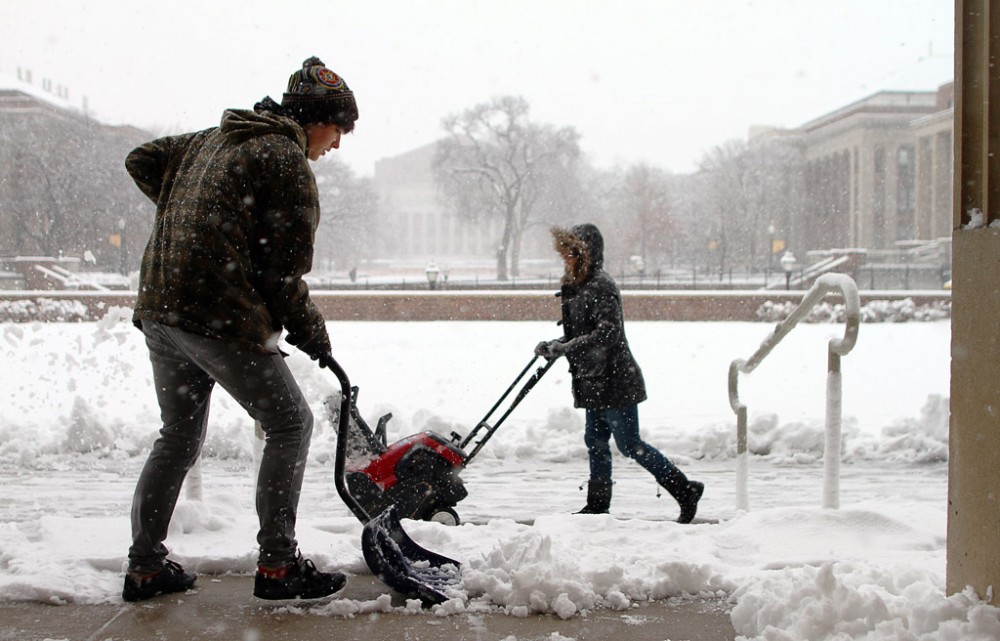With no snow, the University of Minnesota Nordic ski club has resorted to roller skiing on sidewalks. And with barren slopes, practice for the school’s alpine ski team has been cancelled altogether.
For the last 18 months, Minnesota has seen above average temperatures. Last month’s .3 inches of snow tied with the record for lowest Twin Cities February snowfall — first set in 1894.
The lack of snow has forced University snow and ski clubs to cut practices and grapple with cancelled races. Some groups report a newfound interest in environmentalism and a reliance on social events for team building.
“We want to get everyone who loves skiing and snowboarding together … but it’s definitely more of a struggle when you don’t have snow for local trips,” said Taylor Stemler, president of the University’s Ski and Snowboard Club.
While the group has planned larger trips to major ski resorts like Jackson Hole Mountain Resort, regular outings at local hills like Afton Alps have been canceled several times, Stemler said. The die-hard fans are still excited to go out west and ski, but overall membership has been falling. Stemler said he thinks the warm weather is to blame.
“Around campus, it’s been a little bit harder to generate hype for events in the area,” Stemler said. “It just decreases excitement when there isn’t enough snow around here.”
Since the group hasn’t been on the slopes too much this year, they are building camaraderie in other ways.
“We did a fantastic camping trip in the fall, and there’s a prom in the spring. We even have a ‘waxing party’ where we teach people how to wax their skis. So, there’s still things like that to keep people’s enthusiasm up,” Stemler said.
Other than teambuilding, the thaw has led to environmental activism for some. University of Minnesota Nordic Ski Team officer Christina Lundgren says she has seen environmentalism and climate change awareness become more prevalent within the Nordic ski community.
She said she hopes increased awareness will catch on as skiers realize how climate change could affect their sport.
“Because of the lack of snow we’ve been having to race on little man-made loops, which is a little sad,” she said. “You feel like you’re on a hamster wheel.”
While some meets still have non-recyclable Styrofoam cups for soup, Lundgren said, others are beginning to adopt more environmentally-friendly practices.
In addition, Nordic ski race organizers have allowed environmental groups to set up camp at their events. At the City of Lakes Loppet Ski Festival, groups such as Citizens’ Climate Lobby and Cool Planet set up letter-writing stations for race-goers to write to their legislators about climate change.
The Citizens’ Climate Lobby has been attending races for the last 30 years. The Cool Planet Skiers have attended races regularly for the last 10 years and usually try to raise awareness about various social issues, said Paul Thompson, who works with both groups.
Lundgren said that she is hopeful these changes will spark a new level of environmental awareness.
Luckily, groups are still having success in their sports. For the first time in years, the Alpine Ski Team is competing in the national tournament after placing third in regionals.
“[The snow] was crazy dumping when we were skiing at [regionals], and we’re literally experiencing three to four feet of snow here in Oregon for nationals,” said Alpine Team secretary Marlee Hein.
Still, some extra snow at home couldn’t hurt.
“That has been an unfortunate downfall of the season,” Hein said.








